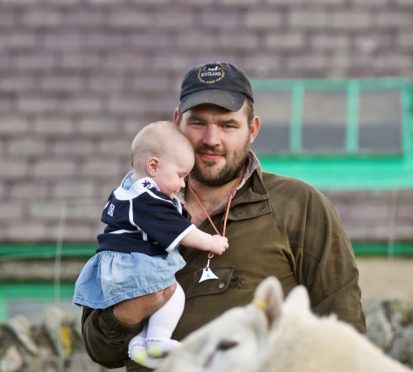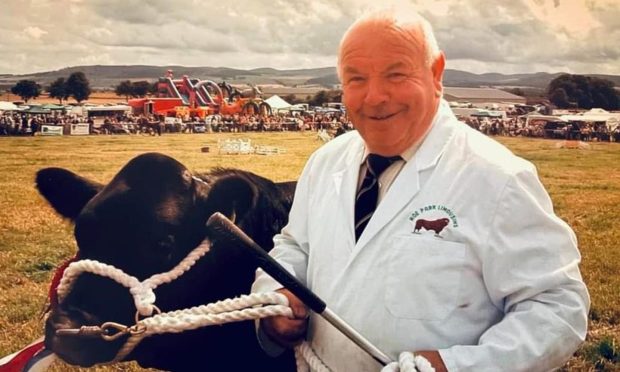New Zealand farmer Doug Avery – the author of The Resilient Farmer – together with his wife Wendy are currently touring Scotland speaking to farmers in a wide variety of venues.
If you haven’t yet had a chance to hear him you really should try to get along to one of his final few events.
He is sharing his coping strategies and mindset which has seen his farming business transform and flourish after years of drought, earthquakes and the removal of their country’s farm subsidy system.
It was moving to listen to his openness and raw emotion when he talked about his own personal battles with depression, but the man that has emerged from all these challenges is a force of nature.
It’s OK to say you’re not OK.
Doug is prepared to share with the masses his journey and in doing so tool up everyone who listens to become more resilient and better equipped to deal with the knocks ahead in life and in business.
There are no mistakes, only lessons learned.
Doug and Wendy were staying with us over the weekend, so I was in the very lucky position to spend more time with them. It didn’t take Doug long to ask me direct questions and there was no hiding place with my answers.
Did I get off farm much? No, I miss my dogs. You must if you are to grow as a person and fulfil your full potential.
Do you find yourself doing bits of work into the small hours? Yes, all the time. That’s poor work that you are producing at that time of day so you need to manage your time and yourself better.
Doug’s take-home messages for me were that I need to disrupt myself and my mindset – as well as hugging more folk. I’m actually quite a good hugger but friends will need to brace themselves the next time they see me coming!
I learnt that change is good and not to be frightened of it. I should know this already as when I separated from my first husband I had to sell everything and buy back what I needed. I had no machinery other than a quad, trailer, snacker and a tractor to put bales out.
I ran 200 fewer ewes but had nearly the same number of lambs by culling out the poor performers and worked hard to improve my pasture quality. I also handed over most of my single farm payment which made me look really hard at what I did.
Since my involvement with the Women in Agriculture task force I have met countless young people in the industry who have immense talent and will bring fresh thinking to the industry. They are the future and Doug’s advice is equally pertinent to them.
Take a step back, set goals, write them down and then revisit them. If they haven’t been achieved, work out why.
That way we will learn from our mistakes.










